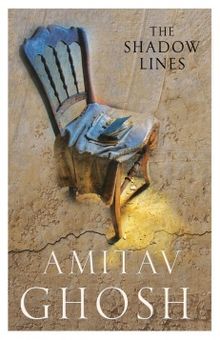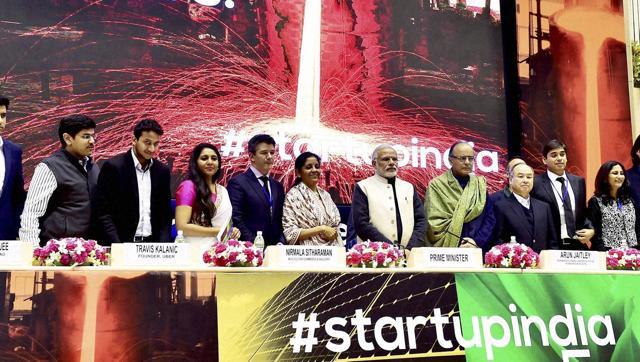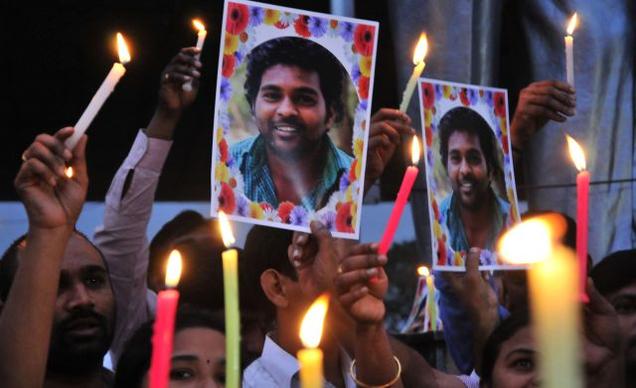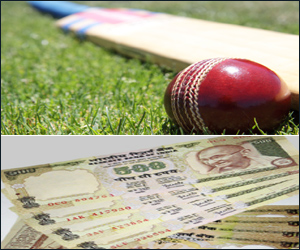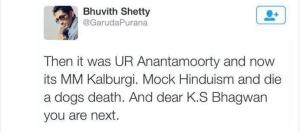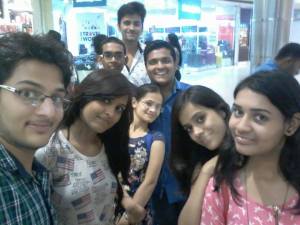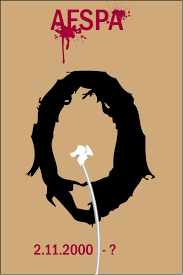
On 9th August 2016, the question mark has been finally replaced with a full stop.
On a sunlit afternoon of November 2, 2000, ten persons including a 62 year old women and 18 year old National child bravery award winner, wait at Malom bus stop of Imphal. Amidst the gentle breeze and pleasant winter sun, a vehicle of 8th Assam Rifles came into view and security men in uniform with coked rifles jumped out; this made the civilians waiting by the bus stop curious. However moments later each of them lay lifeless on the ground with lethal bullets penetrating their bodies.
The civilians killed were evidently no insurgents but this cold blooded killing of innocents was committed “lawfully” under the draconian law of “Armed Forces Special Powers Act (AFSPA)”.
The Armed Forces (Special Powers) Act, 1958, and a virtually identical law, the Armed Forces (J&K) Special Powers Act, 1990, have been in force since 1958 in parts of Northeast India, and since 1990 in J&K. The laws provide sweeping powers to soldiers, including the power to shoot to kill in certain situations and to arrest people without warrants. They also provide virtual immunity from prosecution by requiring prior permission from the Central Government before security personnel can be prosecuted.
This incident marks the beginning of an iconic 16 year long hunger strike by Irom Chanu Sharmila, she resolved not to eat, drink, comb her hair or look in the mirror until AFSPA is repealed.
Just after two days of starting her protest, she has been taken into custody on the charge of committing suicide and later she had been released and rearrested multiple times, and had been kept in a solitary confinement in the special ward of J N institute of medical sciences, Imphal, where she was force fed through a nasal tube to keep her alive.
AFSPA has acquired centrality in any discussion on India’s counter insurgency and anti-terrorism strategy. It has been pilloried as ‘draconian’ by some and defended as unwarrantedly ‘demonised’ by others and been assailed on a number of fronts.
In Manipur in July 2012, the Extra-judicial Execution Victim Families Association, Manipur (EEVFAM), appealed to the Supreme Court of India for justice and has asked for an independent probe into 1,528 cases of extra-judicial execution by security forces in Manipur (North East Sun, November 15, 2012). It is alleged that 1,528 people including 31 women and 98 children have been killed in the name of ‘encounters’ with militants by security forces between 1979 and May 2012. Of these, 419 were killed by Assam Rifles and 481 by combined teams of Manipur police commandos and central armed police forces. In 2018 Supreme Court ordered the CBI probe into the matter and asked NHRC to be actively involved in the probe.
In July 2004, in one of the most blatant cases of human rights violation, men of the Assam Rifles arrested, raped and killed Thangjam Manorama, a young woman in Imphal. After killing the innocent woman who was charged with anti-national activities, they fired bullets into her genitals to prevent the surfacing of evidence of rape. The bullet-ridden body of the woman was left abandoned on the roadside. This provoked the women of Manipur to parade naked in front of the Assam Rifles headquarters, asking the Indian Army to ‘come and rape’ them.
In November 2009, Thockchom Rabina Devi (23) and Chongtham Sanjit (25) were killed by Manipur police commandos in a police ‘encounter’ in the middle of a crowded marketplace in broad daylight. There are many such incidents.
The Justice Jeevan Reddy Committee
The Committee, set up in 2005 following the rape and murder of Thangjam Manorama Devi, reviewed the working of the AFSPA and recommended that it be repealed but its basic provisions be incorporated in another law. The report of the Committee, however, was kept ‘classified’ and never implemented.
The Justice Verma Committee
The committee set up in 2013 following the rape of a 23 year old woman on 16th December 2012, said that sexual violence against women by members of the armed forces or uniformed personnel should be brought under the purview of ordinary criminal law, and urged an immediate review of the continuance of the AFSPA, the committee also recommended an amendment to the AFSPA to remove the requirement of prior sanction from the central government for prosecuting security personnel for certain crimes involving violence against women.
Following the committee’s recommendations, new laws on violence against women were passed in April 2013. These included an amendment to the Code of Criminal Procedure which removed the need for prior sanction for prosecuting government officials for certain crimes involving violence against women, including rape, sexual assault, sexual harassment, voyeurism and stalking. However a similar amendment to the AFSPA that was proposed by the committee was ignored.
The Justice Hegde Commission
In January 2013, the Supreme Court appointed a three-member commission headed by Santosh Hegde, a retired Supreme Court judge, in response to a public interest litigation seeking investigation into 1,528 cases of alleged extrajudicial executions.
The commission was established to determine whether six cases identified by the court were ‘encounter’ deaths – where security forces had fired in self-defence against members of armed groups – or extrajudicial executions. It was also mandated to evaluate the role of the security forces in Manipur.
In its report submitted to the court in April 2013, the commission found that all seven deaths in the six cases it investigated were extrajudicial executions, and also said that the AFSPA was widely abused by security forces in Manipur. The commission said that the continued operation of the AFSPA in Manipur has made “a mockery of the law,” and that security forces have been “transgressing the legal bounds for their counter-insurgency operations in the state of Manipur.”
International and national human rights groups and activists, including Amnesty International, have called for the AFSPA’s repeal for years, with little purposeful response or definitive action from the government. The central government, and state governments of J&K and states in northeast India, has also failed to engage in meaningful debate on the Act despite well documented evidence of abuses.
Army’s stand on AFSPA
Army officials have long held the opinion that the AFSPA is “absolutely essential” to combat insurgency in the country and protect the borders. A former Deputy Chief of Army Staff wrote in January 2013, “In a virulent insurgency, security forces just cannot operate without the cover of the AFSPA. Without it, there would be much hesitation and caution which would work to the advantage of insurgents.”12 Army officials also routinely cite the need to protect the morale and integrity of the army as reason not to scrutinize allegations against army personnel. A retired, senior Indian diplomat told Amnesty International India in May 2013, “If the AFSPA goes, the army will have to go first. The army knows that if the AFSPA is lifted, they’ll be flooded with lawsuits, which are indeed bad for morale, if you deploy the Army, you give them immunity. That’s the narrative the government has accepted from the Army.”
There is no denying of the fact that Armed forces with their valour and sacrifices have time and again saved the country from enemies and anti-social elements. But can rape and murder be justified on grounds of national security? When innocent people are killed in the name of justice by a state that claims to be a democracy, it is not normal to ignore the violations. Hence the authority and accountability of protectors who turned human rights violators will be put to question.
Irom Sharmila’s indomitable spirit and resilience towards her cause garnered solidarity and support from all Manipuris, and had brought the brutalities committed by armed forces on the national panorama, and had made the authorities take cognizance of the matter which was earlier ignored.
Irom Sharmila is not fasting unto death. Rather she is fasting unto life, to remove a brutal law that allows the murder of innocent people’.
– Deepti Priya Mehrotra (Sharmila’s biographer)
Sharmila, in her teenage years was associated with Human Right Alerts (HRA) group and has travelled across the state of Manipur before year 2000 to understand the plight of Manipuris. Her struggle touches and connects, in its stark simplicity, with common citizens; she speaks for many whose voices fade into oblivion, routinely unheard.
Her continuous efforts and hard struggle against AFSPA, has brought changes, but failed to reap the dividends she desired. One of the major failures of her movement was that, it was unable to take the shape of a public and mass mobilising movement. On 9th August 2016 she decided to end her 16 year long hunger strike.
“The expectations that a section of the (Manipuri) public has — that I should continue my fast — is flawed. They made me the only face of the fight against AFSPA. They put me on a pedestal, made me an icon. They forgot that I was human, that I had expectations.
All these years I waited for a mass movement, where people would join me in the fight against AFSPA. I did get solidarity messages and public (acknowledgement) every time I was released on an annual basis, but the momentum was not there. The solidarity was not enough.
The iconhood was thrust on me. It was never of my own making. The decision to break my fast was partly influenced by my discomfort and discontent over this mantle that had been put on me.
I am human and have every right to take my own decisions. That’s exactly what I have done.”
-Irom Sharmila
Her earlier endeavours had failed to create an impact on the government, so she decided to change the course of her fight; she founded Peoples’ Resurgence and Justice Alliance party (PRJA) and contested in 2017 assembly elections. She failed miserably having won just 90 votes.
Her defeat has shown that her 16 year long struggle in flesh and blood, has failed to resonate with people of Manipur, they didn’t want her to join politics, they wanted her to be a martyr for the cause, rather than the elimination of cause itself. It’s a defeat of each and every Manipuri.
Well, after long years of hardship, this mother’s day (12th May 2019) she gave birth to twin girls and has received the greatest gift a mother could ever get on the day which meant to celebrate motherhood.
She is a name to reckon with. One individual, she has taken on the might of the state. She draws power from her unwavering resolve. Her commitment is total, her will strong as steel. Even though her fast has ended but her cause has remained the same, she will neither compromise, nor give up the fight halfway. In staking a claim to peace as a basic right to all people, she has become a symbol, an icon and an inspiration. Her chosen path is original, uncompromising and very tough. Her sacrifices speak louder than words.
Her gist of life can be best summed up in her own poem.
“…my dead body,
To reduce it to cinder
Amidst the flames
Chopping it with axe and spade
Fills my mind with revulsion
The ‘skin’ that is sure to dry out
Let it rot under the ground
Let it be of some use to the future generations
Let it transform into ore in the mines.
I’ll spread the fragrance of peace.”
Most excerpts in this article have been directly taken from following sources:
- Biography of Irom Sharmila: Burning Bright by Deepti Priya Mehrotra.
- Article by former IPS officer K S Subramanian – http://infochangeindia.org/42-human-rights/analysis/9355-impunity-under-afspa
- Amnesty International India – https://www.amnestyusa.org/files/asa200422013en.pdf
- The Hindu – https://www.thehindu.com/news/national/No-fear-no-shame-no-hate-Irom-Sharmila-prepares-for-life-in-politics/article16754655.ece
- Sharmila’s interview to Rediff.com – https://www.rediff.com/news/interview/the-irom-sharmila-interview-i-have-become-more-fearless/20160829.htm
- Institute of Defence Research study on AFSPA by Ali Ahmed – https://idsa.in/system/files/jds_5_2_aahmed.pdf
- Sharmila’s poetry – https://www.thequint.com/lifestyle/books/irom-sharmilas-poetry-the-ideas-behind-a-16-yr-old-hunger-strike

